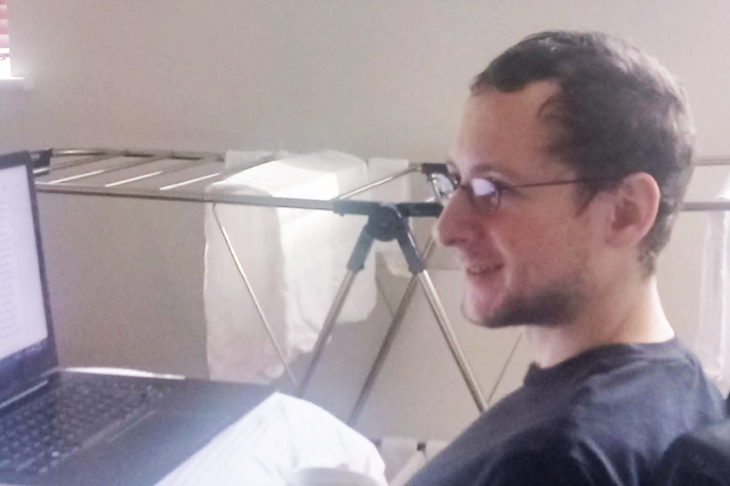‘You’re about to learn why people generally avoid fucking with me.’ Thus spake Nietzsche scholar and Macquarie University philosophy professor Mark Alfano in a tweet directed at me.
I’ll start from the beginning. In late December I published a paper in the academic journal Philosophical Psychology defending the study of race differences in intelligence. This topic arouses strong emotions. But I am a philosopher, and the job of philosophers is to confront issues dispassionately, guided only by reason and evidence. This activity may lead us to question orthodoxies and challenge taboos, but that is what philosophy is all about. Or at least it’s supposed to be.
Some philosophers were very unhappy that my paper had been published. They began attacking it, the journal and me on social media. In most cases, it was clear that these critics had not actually read what outraged them so much. They criticized me for ignoring issues that the paper discussed at length, and they attacked me for saying things I never said. Disappointing, but not surprising.
A group of philosophers led by Alfano decided to take their anger at the paper to the next level, and they set out to cancel its author (me). In Alfano’s words, he wanted to ‘ruin [Cofnas’s] reputation permanently and deservedly’. Soon after his ‘You’re about to learn…’ tweet, a change.org petition asking the editors of Philosophical Psychology for an ‘apology, retraction, or resignation (or some combination of these three)’ was posted on the philosophy blog Daily Nous. Daily Nous, run by University of South Carolina philosophy professor Justin Weinberg, is one of the two most high-profile philosophy blogs on the web. Weinberg did not explicitly endorse the petition, but presented it in a somewhat favorable light. He included a picture of tainted water from Flint, Michigan, apparently to illustrate the petition’s claim that I had ignored the major role played by lead poisoning in race differences in IQ.
Fortunately, the majority of philosophers who replied in the comments section thought that a petition making vague accusations and insinuations about a paper is the wrong way to express scholarly disagreement.
But Alfano enlisted some powerful allies in his jihad against me, including Yale philosophy professor Jason Stanley. Stanley’s opening salvo came in the form of a tweet calling on people to ‘denounce’ my paper. He then commenced listing its supposedly egregious errors. Interestingly, however, he hadn’t read the paper.
I objected that Stanley’s arguments against me were ‘very weak’. He responded a couple hours after his initial tweet saying, ‘I just read your paper…it is even more vacuous than I imagined. No, twin studies do not prove something is hereditary [sic], as the environment might be relevantly similar among different families (e.g. racism is pervasive). Same mistakes.’
Note that Stanley claimed he had ‘just read’ the paper — after, that is, he had publicly called for it to be denounced. But even this was untrue.
Later Stanley admitted that he ‘read it in like 2 minutes’. In other words, he didn’t read it. This explains why he was unfamiliar with what it said. And, given his ignorance on the subject, he was struggling to formulate intelligible criticisms of what he guessed it said. He tried to repeat a generic argument against hereditarianism about race differences: high between-group heritability cannot be inferred from high within-group heritability because an environmental factor might be correlated with genetic differences between the populations. (‘Heritability’, a technical concept, refers to the proportion of the variance in a trait that is explained by genetic differences in a population.) Unbeknownst to Stanley, a long section of my paper addresses that issue in detail.
Stanley quickly blocked me and everyone else who defended me so we couldn’t directly reply to him, and carried on trash talking the paper and me in dozens of follow-up tweets.
Stanley is a tenured professor of philosophy at Yale. I am a graduate student at Oxford. But I don’t play the victim. If you’re in a position to dish it out — like I have done —you’re in a position to take it. I would never hide behind my status as a grad student to protect myself from criticism, even when it’s unfair. But Stanley farcically believes that he is the victim of a power imbalance.
Yale professor Nicholas Christakis — who, along with his wife, was himself the victim of mobbing after the Yale Halloween costume scandal — gently criticized Stanley based on his ‘impression’ that he had ‘called for retraction more than once of papers you disagree with, sometimes allegedly…without even reading them’.
Power imbalance alert! Yale Chair Professor Stanley was criticized by Yale Chair Professor Christakis, who has a slightly fancier title! Stanley retorted: ‘given that you are the single most powerful faculty member at my university, maybe falsely suggesting that I [advocated retraction] is a bit problematic’.
The kerfuffle died down after a few days. The editors of Philosophical Psychology published a statement saying they would not be cowed. Then, last Monday, I noticed a headline on Daily Nous, ‘Countenancing Segregation Based on Imaginary Science’.
‘I wonder what that’s about’, I thought to myself. Surprise: it was about me! It was a guest post by two philosophers of science at the University of Pittsburgh claiming that my paper ‘countenanc[es] segregation’ and ‘includes arguments as to why we might have to consider reintroduction of apartheid schemes’. These are heinous lies. My paper says nothing about ‘segregation’ or ‘apartheid’. In fact, it considers ways to counteract racism and stereotyping.
Professor Weinberg had taken the extremely unusual move of preemptively disabling the Daily Nous comments section, so no one could correct the record. Many thousands of philosophers will now read and perhaps take as fact the claim that I argue for ‘apartheid schemes’. Only a small number will read the paper from beginning to end to see if it’s true. The petition to discredit me by forcing the journal editors to retract my paper, apologize or resign has failed, and even now has barely passed 100 signatories. Plan B appears to be canceling me by spreading outright lies.
As I observed in the paper that triggered this backlash, ‘philosophers are strongly disincentivized from pursuing lines of argument that lead to truly controversial conclusions’. Now we have seen just how far some defenders of the orthodoxy will go to punish taboo violators: if you cross the ideological line, one of the most high-profile news sites in the discipline will accuse you of supporting apartheid and deny you the opportunity to respond. It’s time to start pushing back against those who use underhanded tactics to enforce taboos — in philosophy and other fields.


























